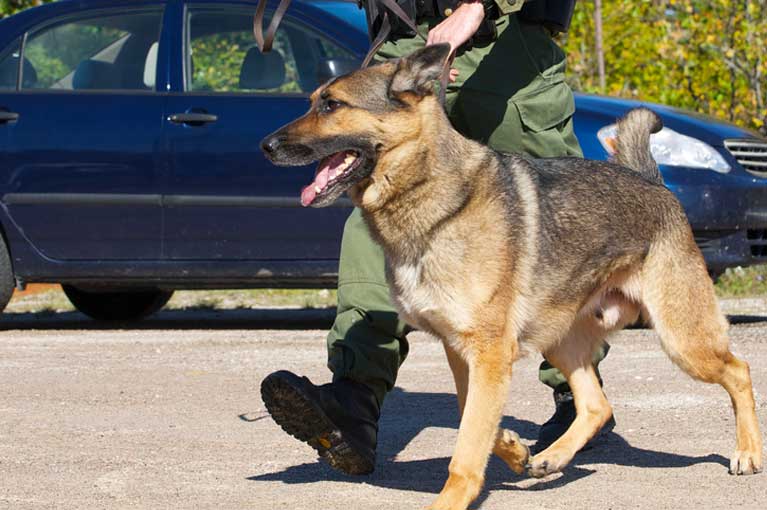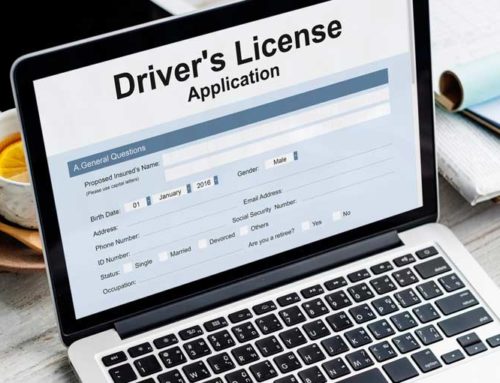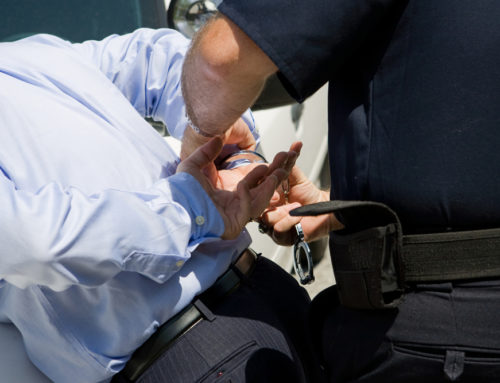Constitution protects citizens from having traffic stop extended to have drug dog search for illegal drugs
Police departments have increasingly used drug dogs to search vehicles during routine traffic stops. A common scenario is where an officer makes a traffic stop on a vehicle. While the vehicle is pulled over, officer 1 calls a second officer to bring a drug dog to the scene of the traffic stop to search the vehicle. Meanwhile, the motorist who has been pulled over is required to sit and wait beyond the time of the original traffic stop until the K-9 Officer shows up on scene. In Rodriguez v. United States, the Supreme Court reviewed this scenario and put limits on this unconstitutional practice. If you have been charged with a drug crime contact a criminal lawyer at Pisarik Law Firm to discuss your criminal defense. 803-415-2733
Case:
Rodriguez v. United States, No: 13-9972 (2015)
Issue:
Whether a traffic stop and seizure violated the Fourth Amendment of the Constitution where a motorist was detained beyond the scope of the original traffic stop in order to wait for a K-9 Officer to show up on scene and search the car with no reasonable suspicion of illegal activity.
Facts:
Dennys Rodriguez was stopped by K-9 Officer Struble for driving on a highway shoulder, a violation of Nebraska law. Officer Struble issued a traffic ticket warning for this offense. After Officer Struble finished everything related to this traffic stop, he asked Rodriguez for permission to walk his drug dog around the car. Rodriguez refused to give consent to this search. At that point, Officer Struble detained Rodriguez while he called another officer to the scene. When the second officer arrived at the scene, Officer Struble walked his drug dog around the car. The dog alerted to the presence of drugs, and the subsequent search revealed methamphetamine in the car. The total time that elapsed from the time the officer created the warning ticket to the time the dog alerted was seven or eight minutes.
The criminal lawyer representing Rodriguez argued that Officer Struble had extended the original traffic stop without reasonable suspicion. However, the Magistrate Judge found that the minimal seven or eight minute intrusion on Rodriguez’s Fourth Amendment rights made the search permissible.
Holding:
The Supreme Court held that police may not extend a traffic stop in order to conduct a drug dog sniff absent some reasonable suspicion that the suspect possesses drugs. The Court equates a traffic stop to a brief Terry v. Ohio stop and not an arrest. That means the acceptable duration of the stop is determined by the stop’s mission. Here, the mission of the stop was to address Rodriguez’s traffic violation. Once the Officer gave Rodriguez a warning traffic ticket for his traffic violation, the mission of the stop ended. Therefore, the Officer violated Rodriguez’s Fourth Amendment rights by extending the original stop in order to complete a drug search.
The Supreme Court has held in previous cases that the Fourth Amendment may tolerate certain unrelated investigations during a traffic stop, however, they may not lengthen the duration of the stop. The Eighth Circuit reasoned that certain de minimis intrusions into a suspect’s Fourth Amendment rights were legitimate given the Government’s interest in stopping the flow of illegal drugs. However, the Supreme Court held that de minimis intrusions have only been allowed when Officer safety is at issue. Here, the Supreme Court held there was no officer safety issue and no reason to prolong this stop beyond its original purpose. Therefore, the search violated Rodriguez’s Fourth Amendment rights.
Contact a criminal lawyer at Pisarik Law Firm to discuss your criminal defense.
Just because you have been charged with drug crime does not mean that you are guilty. A criminal lawyer may be able to help you with your criminal defense and will be able to review whether your drug search was valid. As was the case in Rodriguez v. United States, there may be defenses to your criminal charge. If you have been charged with a criminal offense, contact a criminal lawyer at Pisarik Law Firm for a free consultation today. 803-415-2733






